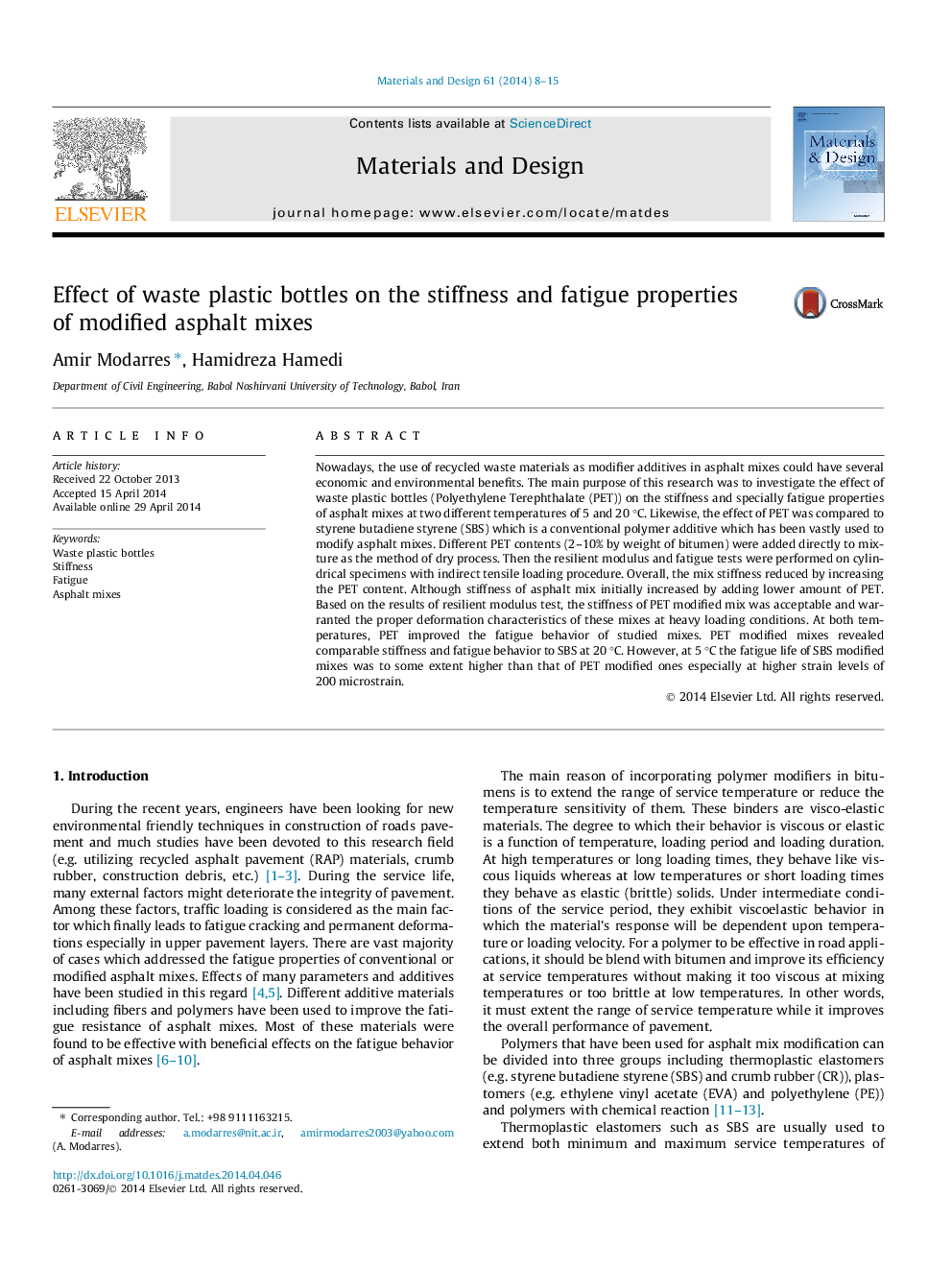| Article ID | Journal | Published Year | Pages | File Type |
|---|---|---|---|---|
| 829126 | Materials & Design (1980-2015) | 2014 | 8 Pages |
•PET reduced the mix stiffness at both temperatures of 5 and 25 °C.•PET improved the fatigue behavior at both testing temperatures.•At more than 210 microstrain, adding temperature resulted in higher fatigue life.•SBS modified mixes showed better fatigue behavior than PET modified ones.•Overall PET had comparable effects to SBS on the stiffness and fatigue behavior.
Nowadays, the use of recycled waste materials as modifier additives in asphalt mixes could have several economic and environmental benefits. The main purpose of this research was to investigate the effect of waste plastic bottles (Polyethylene Terephthalate (PET)) on the stiffness and specially fatigue properties of asphalt mixes at two different temperatures of 5 and 20 °C. Likewise, the effect of PET was compared to styrene butadiene styrene (SBS) which is a conventional polymer additive which has been vastly used to modify asphalt mixes. Different PET contents (2–10% by weight of bitumen) were added directly to mixture as the method of dry process. Then the resilient modulus and fatigue tests were performed on cylindrical specimens with indirect tensile loading procedure. Overall, the mix stiffness reduced by increasing the PET content. Although stiffness of asphalt mix initially increased by adding lower amount of PET. Based on the results of resilient modulus test, the stiffness of PET modified mix was acceptable and warranted the proper deformation characteristics of these mixes at heavy loading conditions. At both temperatures, PET improved the fatigue behavior of studied mixes. PET modified mixes revealed comparable stiffness and fatigue behavior to SBS at 20 °C. However, at 5 °C the fatigue life of SBS modified mixes was to some extent higher than that of PET modified ones especially at higher strain levels of 200 microstrain.
